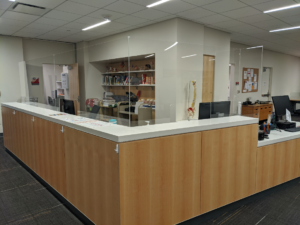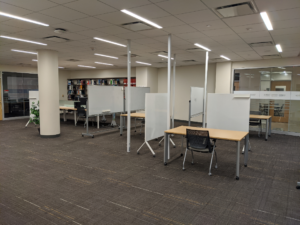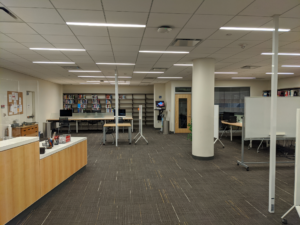
Dr. Joycelyn Elders grew up in rural and segregated Arkansas. She didn’t even meet a doctor until she was 16 years old, but she heard a speech by Dr. Edith Irby Jones while she was in college and decided to become a physician. She is an Army veteran who attended medical school on the G.I. bill.

She worked in the realms of both clinical practice and research and was the first person to be board certified in pediatric endocrinology in the state of Arkansas. In 1993, she was appointed and confirmed as the fifteenth Surgeon General of the United States – the first African American and second woman to hold that position.
While she was a controversial figure during her time as Surgeon General, she was always able to spark conversation about previously taboo topics in the name of improving adolescent health.
She spoke on race and health at UH this past November where I was able to take this photo. What an honor to have such a role model here on campus!
More information is available here: https://cfmedicine.nlm.nih.gov/physicians/biography_98.html
This week’s #DiversityInHealthcare highlight is ophthalmologist Dr. Patricia Bath.
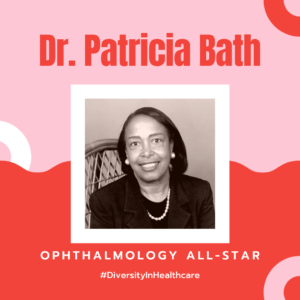
Patricia Bath was born in 1942 in Harlem. She was inspired by Dr. Albert Schweitzer and her own family physician, Dr. Cecil Marquez, to pursue a career in medicine. She attended medical school at Howard University, had a fellowship at Columbia, and completed her residency at NYU.
The “firsts” achieved by Bath are too numerous to name, but among them are being the first African-American Ophthalmology resident at NYU, inventing the discipline of community ophthalmology, becoming the first woman on the faculty at UCLA’s Jules Stein Eye Institute, co-founding the American Institute for the Prevention of Blindness, and inventing the laserphaco probe and method for removing cataracts. WOW.
Dr. Patricia Bath spent her long and illustrious career working to reduce racial disparities in ophthalmic care and in doing so was able to restore sight to people who had been blind for over 30 years.
More info is available at https://cfmedicine.nlm.nih.gov/physicians/biography_26.html
Photo source: https://cfmedicine.nlm.nih.gov/static/img/portraits/26.jpg
Throughout the fall semester, we will be highlighting #DiversityInHealthcare on our social media. This week we are focusing on Mae Jemison.
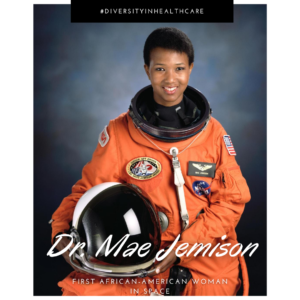
Mae Jemison is best known as the first African-American woman in space, taking part in the STS-47 mission in September of 1992.
Prior to her time at NASA, Jemison attended medical school at Cornell and worked as a general practitioner. She also served as a medical officer in the Peace Corps for two+ years. Much of her work since NASA has focused on biotechnology and furthering STEM education for children.
Dr. Jemison has an impressive career, and she is also an informative and inspirational speaker. I had the opportunity to sit front and center for her John P. McGovern Award Lecture at the 2015 Medical Library Association meeting, and it was both fun and thought-provoking.
Dr. Mae Jemison, breaking barriers – on Earth and beyond – since 1956.
More info is available at https://cfmedicine.nlm.nih.gov/physicians/biography_168.html
Photo source: https://images.nasa.gov/details-S92-40463
The Health Sciences Library plans to re-open with limited hours and capacity on Monday, August 17.
Our hours will be the following:
- Monday – Friday — 8:00 am – 5:00 pm
- Saturday — Closed
- Sunday — 1:00 pm – 5:00 pm
Thank you for
- wearing a mask
- practicing social distancing
- practicing proper hand hygiene
- not bringing food or drink into the library
Closed until further notice
- group study rooms
- conference room
- quiet study room
- reading room
Much of the furniture in the open study areas, along with half of our computers, have been removed to encourage social distancing.
Optometry students, please enter the Compulink room through the door across from Cougar Grounds.
Most services, such as consultations and instruction sessions, will continue to be provided remotely.
Please check this space, https://libraries.uh.edu, our social media @uhoustonhslib, or contact rrhelbin@central.uh.edu for updates on our hours and policies.
Access to the literature is important for your learning and research. UH Libraries subscribes to a large number of journals in the health sciences. Many people use PubMed as their portal to access biomedical literature. Watch the video below for a quick tutorial on how to access full text articles through PubMed. Step-by-step instructions with screenshots are included below the video.
First, visit the link below.
Always make sure you are accessing PubMed through UH’s unique URL, rather than just visiting pubmed.gov.

Enter your search terms. Once you find an article of interest, click on the title. You will see a “UH Find This Item” button on the right side of the page, under “FULL TEXT LINKS.”

For journals to which we subscribe, clicking that button should take you to the full text of the article.
Depending on the publisher and whether you are on or off campus, you may be prompted to log in with your CougarNet account.

Look for a link to the PDF of the article and download it.

Alternatively, you can change the display of your results so that you don’t have to click on each individual title to get to the “UH Find This Item” button.
At the top right of the results page, click on “Display options” and then “Abstract.”

This will change the results page to show you the abstract of each article, with the “UH Find This Item” button appearing at the bottom of each abstract.

Again, click on the button to access the full text of the article.
I hope this helps! Please let us know if you have questions.
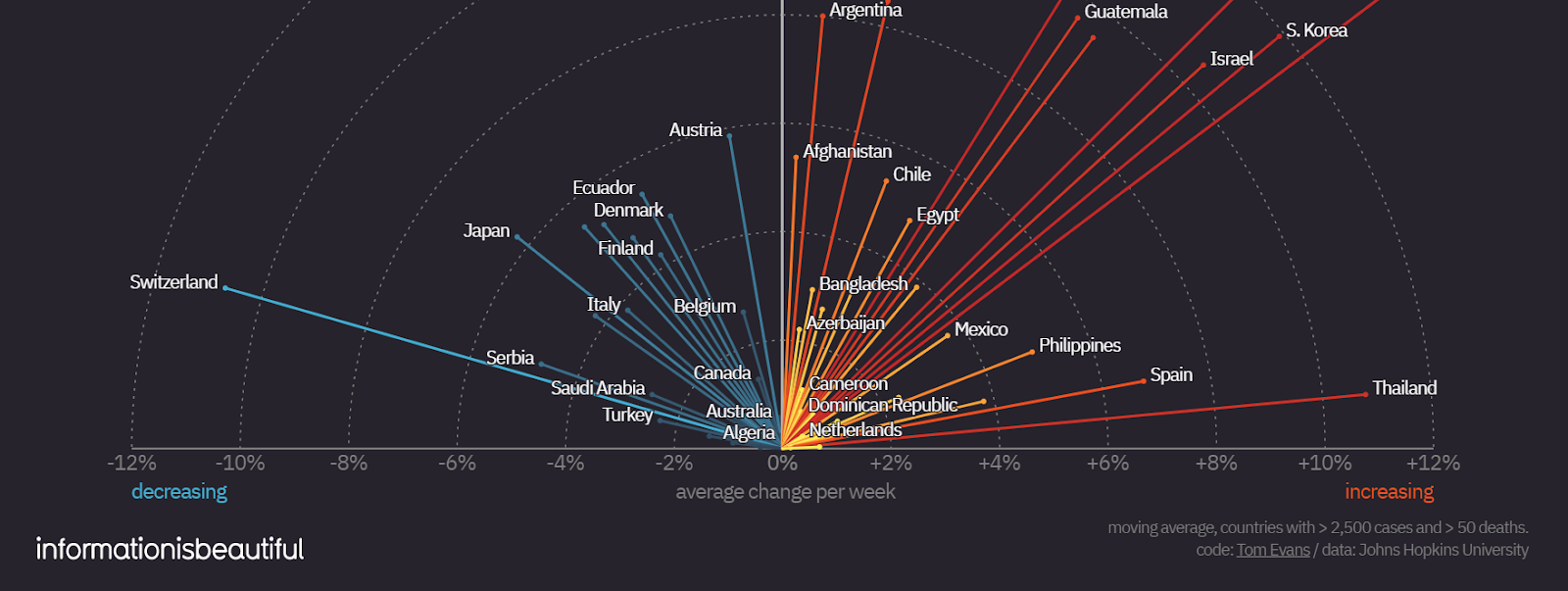
The Covid-19 pandemic has mobilized researchers around the world, particularly those engaged in health sciences and adjacent fields. The output of new preliminary research, trials, Covid-related data and code, as well as tools for visualizing and analyzing these materials, can be overwhelming. The following list of online venues that are hosting and curating Covid-related research and data is not intended to be comprehensive, but is a starting point for those who are engaged in this work, those who have an interest in initiating Covid-related research, or those who may be planning to use these materials in the classroom. With a broad variety of new and interdisciplinary research emerging by the hour, UH Libraries can help you identify, collect, organize research data, as well as archive and share the research data you generate, at the start of a project and at any phase along the way.
Federal repositories for COVID-19 data
Open-Access Data and Computational Resources to Address COVID-19
From the NIH, Office of Data Science Strategy. “Covid-19 open-access data and computational resources are being provided by federal agencies, including NIH, public consortia, and private entities. These resources are freely available to researchers, and this page will be updated as more information becomes available.”
Covid-19 Secondary data and statistics
CDC collection of selected secondary data and statistics sources to help researchers find data on Covid-19 (2019 Novel Coronavirus). Materials listed in these guides are selected to provide awareness of quality public health literature and resources.
Coronavirus (Covid-19) Consumer Complaint Data
The FTC publishes updated coronavirus-related complaint data each weekday based on fraud, do not call, identity theft, and other reports consumers submit to the Consumer Sentinel Network via Complaint Assistant. The aggregated data begins January 1, 2020 and runs to the current date.
Covid-19 Demographic and Economic Resources
The Covid-19 Hub presents selected Census Bureau demographic and economic data to help guide decision making during the Covid-19 pandemic. The data are presented in interactive maps and downloadable resources that users can directly incorporate into their research and data products.
General Data Repositories for Covid-19 data
Dimensions Covid-19 publications, data sets, clinical trials
Dimensions, the sister company to the open data repository Figshare, is a scholarly database that includes awarded grants, patents, and clinical trials alongside publication and Altmetric attention data. Updated daily, this spreadsheet provides access to content from Dimensions.ai that includes a global body of publications, datasets, clinical trials, and grants.
Github Topic for Covid-19
Github is an open community for software and code development, collaboration, and sharing. Commonly, subjects with heavy interest and focus are compiled as a Topic. This Github topic provides a compilation of public repositories that contain code focused around research and awareness of the virus.
Zenodo Coronavirus Disease Research Community – COVID-19
Zenodo is an open access, open source, international “catch-all” repository that was founded by CERN and the OpenAire Project in 2013. Zenodo allows users to create communities of research and sharing within the platform. This community collects research outputs relevant to the Coronavirus Disease (Covid-19) or the SARS-CoV-2. Scientists are encouraged to upload their outcome in this collection to facilitate sharing and discovery of information.
Harvard Dataverse – COVID-19 Data Collection
Harvard Dataverse is a free data repository open to all researchers from any discipline both inside and outside of the Harvard community. This is a general collection of Covid-19 data deposited in the Harvard Dataverse. Researchers who deposit their related data into Harvard Dataverse will have the content linked to this collection, to increase discoverability of their data.
Research Repositories for Covid-19 Literature
LitCovid
LitCovid is a curated hub for tracking up-to-date and peer-reviewed scientific literature from PubMed about the 2019 novel Coronavirus, providing a central access point to relevant articles.
CORD-19
Covid-19 Open Research Dataset allows you to search scholarly articles, including over 13,000 with full text, about Covid-19 and the coronavirus family of viruses for use by the global research community.
Covid-19 SARS-CoV-2 preliminary research posted to medRxiv and bioRxiv
An up-to-the-minute collection of Covid-19 SARS-CoV-2 preliminary findings posted to medRxiv and bioRxiv, the two primary preprint servers for biologists, clinicians, and other health science researchers. Note that both medRxiv and bioRxiv receive many new papers on coronavirus SARS-CoV-2 daily, all of which undergo a screening process, but these are preliminary reports and have not been peer reviewed.
Tools for Covid-19 Visualization
Coronavirus world map and US map
Coronavirus world map and US map from John Hopkins University. The interactive world map gives you confirmed cases by country, region, and global death and recoveries. The US map breaks down to the county level and is updated daily.
Coronavirus infographic datapack
Coronavirus infographic datapack from information is beautiful contains a variety of visualizations related to Covid-19, such as infection trajectories, rising and falling of cases and deaths, connections with existing conditions.
CDC graphics
CDC provides graphics associated with Covid-19, including mortality and rates of hospitalization.
Coronavirus tracker by Tableau
Coronavirus tracker provided by Tableau visualizes Johns Hopkins University data to help you stay on top of key Covid-19 metrics, including totals, the spread of Covid-19, and outbreaks around the world. This dashboard will be updated daily.
IHME Covid-19 projections
Covid-19 projections created by the Institute for Health Metrics and Evaluation (IHME) at the University of Washington. It projects daily infections and testing, daily and total death, and hospital resource use in the world and the US. It also breaks down to states to further investigate the trends for specific areas.
These resources are just the tip of the iceberg of what is available. We can also help you navigate beyond the landscape of Covid-19 research. For additional information feel free to consult our research guides for Finding Data and Data Archiving or schedule a consultation.
Beginning Monday, May 18, the Health Sciences Library will be closed, but staff will be on site from 9 am – 5 pm Monday through Friday.
For assistance, contact Rachel Helbing via email at rrhelbin@central.uh.edu or phone at 713-743-5462.
Those who have received permission to return to campus may request physical materials and/or printing.
Physical materials (books, models, etc.):
-
- Send requests to rrhelbin@central.uh.edu. Once a pick-up time has been arranged, materials will be checked out and placed on top of the book drop in the hallway outside the library.
- Materials can be returned in the book drop.
Printing:
-
- Send files to be printed as attachments to rrhelbin@central.uh.edu. Once a pick-up time has been arranged, prints will be placed on top of the book drop in the hallway outside the library.
All remaining library services will continue to be provided remotely, both on and off campus.
-
- Reference/access questions
- Research consultations
- Instruction
- Literature search assistance
Thank you, and stay healthy!

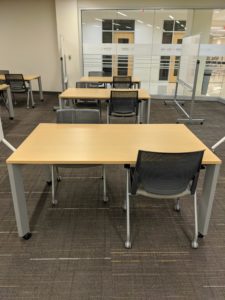 The Health Sciences Library space is closed until further notice.
The Health Sciences Library space is closed until further notice.
Please check this blog for updates.
Library services are still available!
We are working remotely to continue providing library services to our health sciences faculty, staff, and students.
Contact us for questions about electronic resources access, instruction requests, research consultations, literature search assistance, etc.
Ways to reach us:
- Contact your liaison librarian directly.
Rachel Helbing
713-743-5462
Health & Human Performance
Health Education
Medicine
Optometry
Pharmacy
Stefanie Lapka
713-743-8334
Communication Sciences & Disorders
Nursing
Social Work
- Contact our general email address. It will be monitored from 7 am – 6 pm Monday through Friday.
Try to stay healthy, everyone!
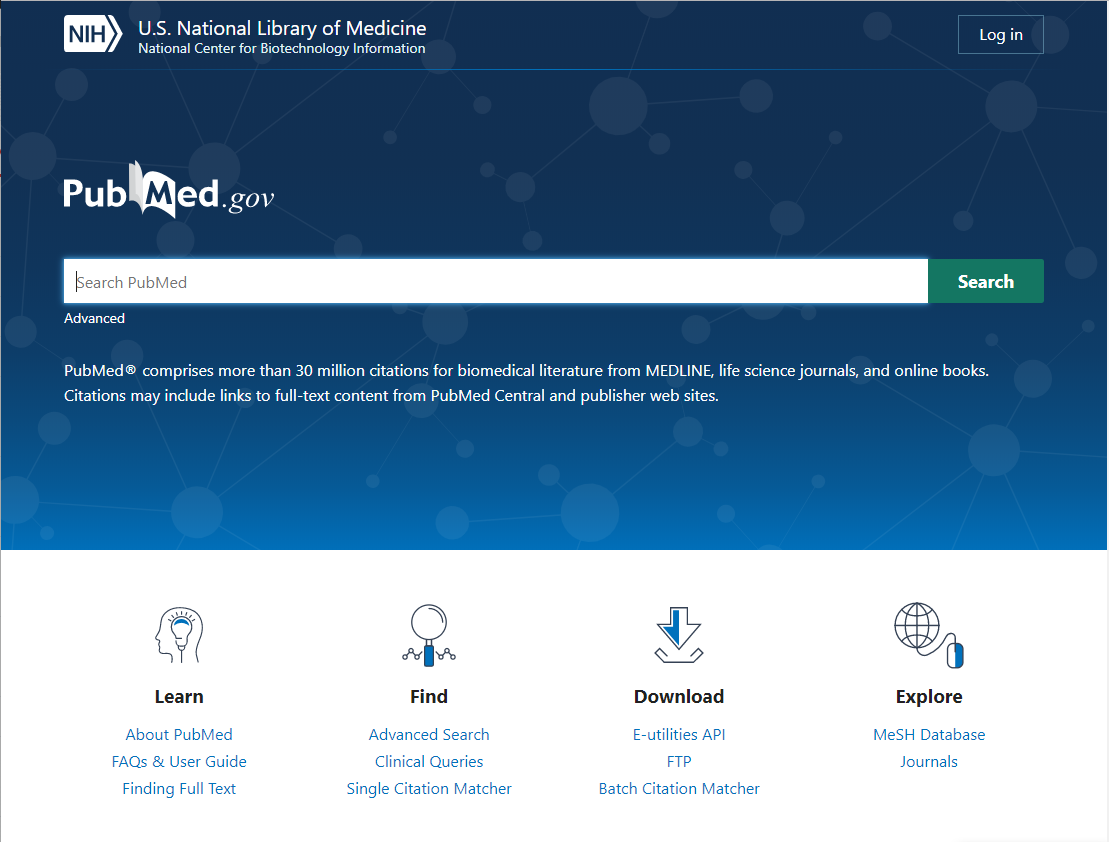
The National Library of Medicine (NLM) has been developing an updated version of PubMed which will replace the current interface sometime in early 2020.
New features will include enhanced search results and a responsive design for mobile devices.
The new site is currently available to preview and use at https://pubmed.ncbi.nlm.nih.gov/?otool=uhulib

Be sure to click on the green “Feedback” button in the lower right corner of the page to let NLM know what you think, or if you encounter any problems.
To help you get ready for this change, the Health Sciences Librarians will be hosting PubMed demonstration & help sessions in December (at the Health Sciences Library) and January (in the Faculty Café).
New PubMed demo drop-in sessions,
Held at the Health Sciences Library conference room:
Monday, December 2……….12:00 pm – 2:00 pm
Tuesday, December 3……….12:00 pm – 2:00 pm
Thursday, December 5……..3:00 pm – 5:00 pm
Tuesday, December 10……..11:00 am – 1:00 pm
Thursday, December 12……12:00 pm – 2:00 pm
Friday, December 13…………9:00 am – 11:00 am
Monday, December 16……..10:00 am – 12:00 pm
Wednesday, December 18..12:00 pm – 2:00 pm
New PubMed demo drop-in sessions,
Held at the Faculty Café:
Thursday, January 9…………8:30 am – 10:30 am
Friday, January 10……………8:30 am – 10:30 am
Wednesday, January 15……11:00 am – 1:00 pm
Thursday, January 23……….2:00 pm – 4:00 pm

Not ready to make the switch? You can still access full-text articles through the current version of PubMed by using UH Libraries’ custom link, https://libraries.uh.edu/pubmed

Please stop by one of our upcoming sessions, or contact the Health Sciences Library with any questions.
Rachel Helbing, rrhelbin@central.uh.edu, 713-743-5462
Stefanie Lapka, slapka@central.uh.edu, 713-743-8334
You should now be able to call us on our main line and get through: 713-743-1910.
Apologies for the inconvenience caused by this outage.
